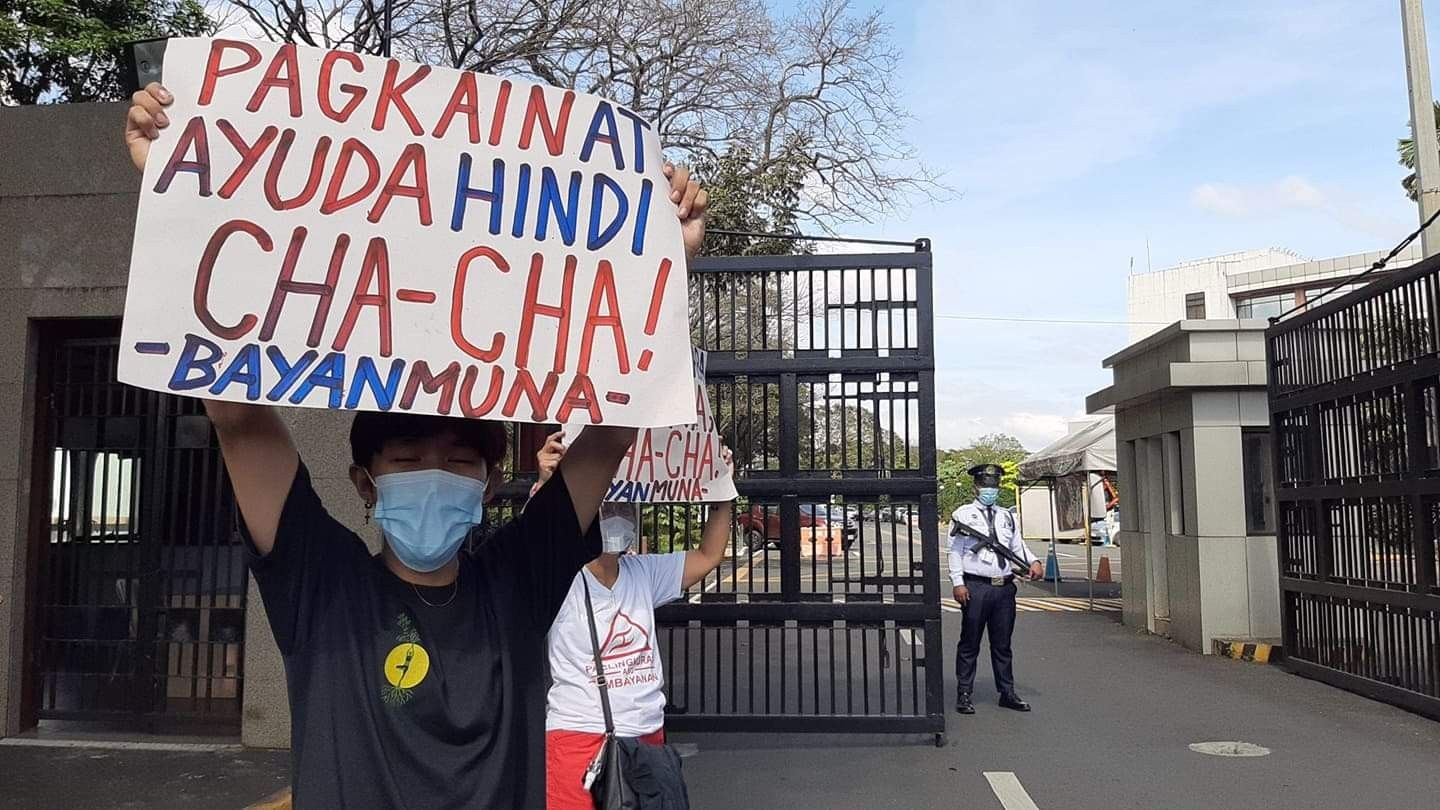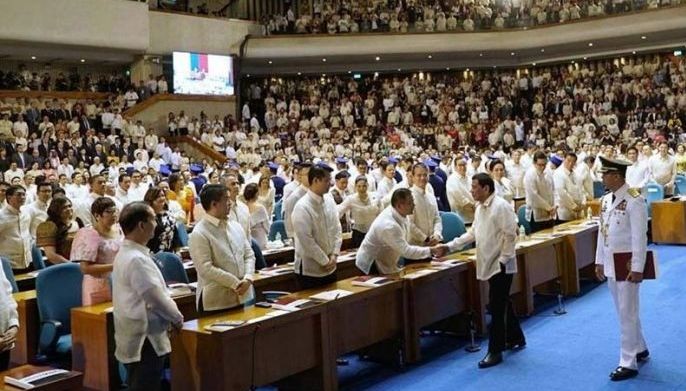Charter change clears House panel

MANILA, Philippines (Update 2 3:20 p.m.) — The House constitutional amendments committee approved Tuesday in a 64-3-3 vote Speaker Lord Allan Velasco’s proposal to amend “restrictive” economic provisions in the Constitution.
The panel approved on the 34th anniversary of the ratification of the 1987 Constitution Velasco’s proposal to allow Congress to tweak the constitutional restrictions on foreign investments in natural resources, public utilities, educational institutions, media and advertising.
However, it deleted the proposed provision which would allow Congress to tinker with the restriction on the ownership of land, following recommendations by resource persons, including Finance Secretary Carlos Dominguez, to keep the restriction in place.
The panel’s approval came just after three hearings since it restarted Charter change discussions in January upon the speaker’s directive.
The approval of the proposed amedments by the committee paves the way for these to be tackled in the plenary where all House members may debate on the measure further and may introduce other amendments to it.
Lawmakers at the House of Representatives have repeatedly said that they would only propose changes to economic provisions, but political observers are wary that any move to tinker with the Constitution would open the floodgates to any kind of amendments, including those that would benefit lawmakers such as term extensions or lifting of term limits.
House constitutional amendments chair Alfredo Garbin (AKO BIKOL party-list) has said that he wants plenary debates to start by the first week of February. Velasco eyes finishing debates before the end of 2021 and put up the proposed amendments for ratification during the 2022 elections.
Voting jointly or separately?
RBH 2 provides that the House and the Senate will vote separately on proposed amendments to the Constitution. While the panel did not touch this provision, some of its members advocated for both houses of Congress to vote jointly, saying that voting separately serves as a roadblock to any attempt to change the Constitution.
"If, in case the Senate does not agree, everything that we are working hard on here would be for nothing and we will never be able to amend the Constitution," Deputy Speaker Rodante Marcoleta (Sagip party-list) said partly in Filipino.
The issue of whether Congress should vote jointly or separately has been a constant thorn in the side of Charter change discussions as the Senate, wary of being outnumbered by the more than 300 lawmakers at the House, always opposes any move for the legislature to vote together.
Former Supreme Court Associate Justice Adolfo Azcuna, one of the Framers of the Constitution, insisted that Congress should vote separately, citing the bicameral nature of the legislature.
Pressed further by lawmakers, however, Azcuna said that if Congress were to vote jointly, a majority of the Senate should still be represented in the voting.
"If you do not have the majority of the Senate, then the action is not the act of the Senate. If it is not an act of the Senate, it is not the act of Congress," he said.
The Senate is currently cool to proposals to amend the Constitution, with senators questioning the timing of Charter change while the country still reels from the effects of the COVID-19 pandemic and just 15 months before the 2022 elections.
- Latest
- Trending
































